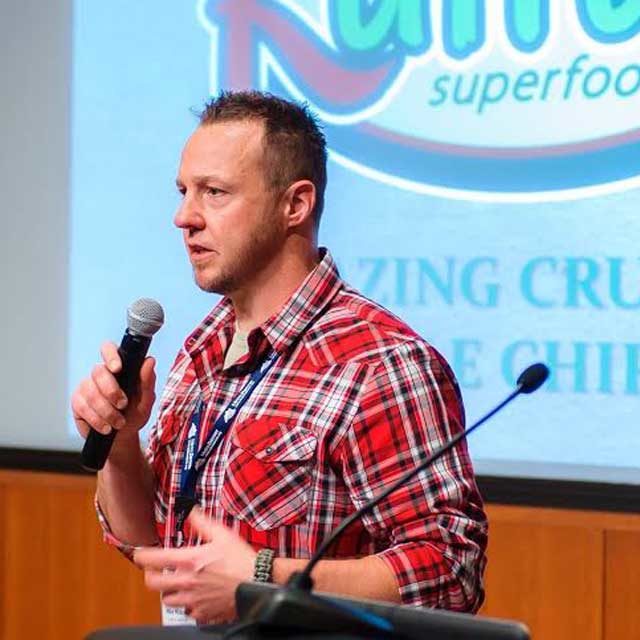
A little over three years ago, Mike Milakovic moved to the small town of Creede, Colorado, and began baking kale chips in his home kitchen to give to friends around town. The side project soon turned into Kulture Superfoods, a brand of kale chips specifically marketed toward kids in order to help fight rising childhood obesity.
Before Milakovic was involved with the health and wellness industry, he was an overweight kid himself, who was often teased and bullied throughout elementary school in the food desert of Michigan City, Indiana.
“My mom and dad were divorced,” he says, “[And my mom] kind of fell into that category of the working mom trying to take care of two kids. She didn’t really have the knowledge or the tools to understand what food does to the body. So we ate a lot of processed food growing up, McDonalds, things like that, because it was cheap and fast.”
Things changed for Milakovic when he entered junior high school, as he started to get more involved with sports and found himself losing weight. Continuing his athletic career through high school, he became the star football player and earned himself an athletic scholarship to attend Ball State University in Indiana.
Milakovic earned a degree in exercise science, and he took up track and field, competing in the hammer throw, eventually deciding to try out for the Olympics in the event.
“Got a coach from Sweden, spent about 10 years of my life chasing the Olympic dream and lived in Hungary for a year,” Milakovic says.
After which, Milakovic decided he needed a change of pace and moved to Creede.
“I knew I wanted to do something related to health and wellness, I just didn’t know what it was going to be,” Milakovic says. “I knew I wanted to make a product, I just didn’t know the first thing about it.”
Kulture Superfoods has officially been in business for 18 months, selling flavored kale chips that are meant for kids to enjoy as a healthy alternative to salty, sugary snack foods.

It’s Milakovic’s personal response to the rapidly increasing rates of childhood obesity.
“I think that’s the big issue, there’s so much misinformation out there because it’s all being marketed by these major companies, ‘This is healthy, this isn’t healthy,’” Milakovic says. “Just because [a food contains] organic cane sugar doesn’t mean it’s good for you.”
Since the 1970s, nutritionists have been warning about the short- and long-term effects of childhood obesity, including joint and bone problems, increased risk for cardiovascular disease, prediabetes, type two diabetes, osteoarthritis and several different types of cancers.
According to the Center for Disease Control (CDC) the childhood obesity rate has more than doubled in children over the last 30 years, and quadrupled among adolescents in the same time. By 2012, one-third of children and adolescents in the U.S. were overweight or obese.
Following the national trend, 26.5 percent of children in Colorado are overweight or obese, more than one in four children ages 5-11.
According to Dr. Nicole Stob, an instructor at the University of Colorado Boulder who teaches nutrition for health and wellness, one of the factors that plays into childhood obesity is a lack of education.
“Society needs to take the issue of childhood obesity more seriously,” Stob says in an email interview with Boulder Weekly. “Although parents can make a difference, I believe that we need to focus on educating our children about nutrition.”
Stob believes incorporating nutrition classes into schools — as early as kindergarten — is key.
“We will not see results overnight, but over time I think we can fight back against the childhood obesity epidemic if children are being taught about eating healthy and being active alongside other important subjects like math and English,” Stob says.
To make his message more accessible to children, Milakovic is also creating a series of mascots that represent the different flavors of his kale chips that will duke it out with the junk food gang, a collection of nasty ingredients like high fructose corn syrup.
“I think the biggest issue with kids is that they see a green vegetable … and they are immediately like, ‘Nope, I don’t want it,’” Milakovic says. “They’re so conditioned to that that it was my mission to make these taste not like a vegetable.”














